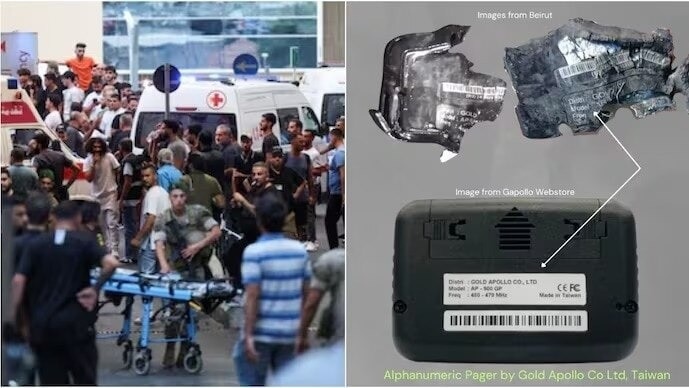2024-09-18 21:25:15
Israel executed an unprecedented attack on Hezbollah operatives with pager blasts in Lebanon on Tuesday, in which at least nine people were killed and around 2,750 were wounded.
Wireless devices used by members of the militant group Hezbollah exploded, who said two of its fighters were killed and blamed Israel for the blasts. This came despite Hezbollah having instructed its members to avoid mobile phones after the Gaza war began and to rely instead on its own telecommunications system to prevent Israeli breaches.
The sophisticated and covertly coordinated attack on Hezbollah operatives has raised several questions that any country that wants to stay safe and secure against such attacks needs to find an answer to.
WHAT HAPPENED?
On Tuesday afternoon, around 3:30 pm, a series of handheld communication devices (pagers) were used to receive radio signals as text messages began exploding in Lebanon. According to local reports, between 3,000 to 5,000 such devices were affected, resulting in at least 9 deaths and thousands of injuries. Among the victims were Hezbollah fighters and Iran’s envoy to Beirut, Iranian Ambassador Mojtaba Amini, who lost one eye and severely injured the other when his pager exploded. The unprecedented attack has been attributed to Israel, although no official claim of responsibility has been made.
WAS IT A MASS CYBER ATTACK BY ISRAEL?
No. Experts believe it’s highly unlikely that pagers could be remotely hacked and turned into explosive devices. The more accepted theory is that Israel exploited vulnerabilities in the global supply chain through which Hezbollah procured these devices. Attackers likely gained physical access to the pagers, planting explosive materials or devices in them. So, cyber-hacking was not involved. So, if you are worried that your smartphone could be turned into a bomb by a foreign agency one day, that day is not here yet. Pagers affected were electronic devices, not digital ones.
IF IT WAS NOT A CYBER ATTACK, HOW DID IT HAPPEN?
Hezbollah procured these pagers through overseas channels. Intelligence about the shipment of a new batch of devices, combined with agents on the ground, likely allowed attackers to physically modify the hardware, potentially planting remotely detonable components. The pagers’ ability to access remote signals could have been exploited to trigger the explosions simultaneously.
WHO MANUFACTURED THESE PAGERS?
The exploded pagers bore the commercial trademarks of Taiwan-based company Gold Apollo. However, the company stated it did not manufacture the devices. Instead, they were produced by a European company called BAC, which has a licence to use Gold Apollo’s brand. The ambiguity in the supply chain, involving lesser-known companies, may have been exploited by the attackers.
WHY WAS HEZBOLLAH USING SUCH OUTDATED TECHNOLOGY, LIKE PAGERS?
Israel’s proven capability in monitoring modern digital communication (such as internet and smartphone activity) led Hezbollah to adopt older technologies like landline phones and pagers, which don’t rely on the internet. While this seemed like a sound strategy to avoid digital surveillance, it backfired. In a modern setting, the limited use of pagers made it easier for foreign agencies to identify Hezbollah-linked operatives.
WHAT LESSON CAN INDIA DRAW FROM THIS INCIDENT?
India has taken steps to mitigate similar risks but should continue reviewing its public communication hardware for vulnerabilities. For example, India’s decision to exclude foreign (especially Chinese) technology in its 5G rollout highlights the importance of safeguarding critical infrastructure.
As External Affairs Minister S Jaishankar noted earlier this month, while developing an indigenous 5G stack may appear costly upfront, the long-term security benefits are invaluable. The use of foreign-supplied devices, such as CCTV cameras from China-linked supply chains, could still pose future security concerns though.
With inputs from Ankit Koomar
Pager blast, Lebanon pager blast, Lebanon attack, Lebanon pager attack, pager blast Lebanon, pager blasts in Lebanon, Israel Lebanon attack, world news, middle east tension, Lebanon pager attack top questions
Source link
9 total views , 1 views today
